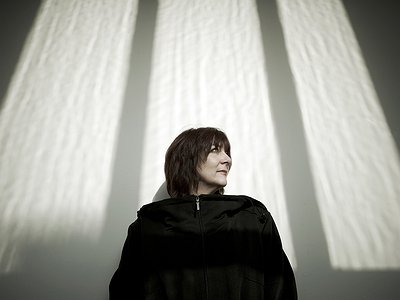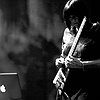Part 1
Name: Cosey Newby AKA Cosey Fanni Tutti
Nationality: British
Occupation: Artist / Musician
Current Release: Art Sex Music - Cosey’s autobiography published by Faber & Faber in April 2017
Musical Recommendations: Gazelle Twin, Klara Lewis
Website / Contact: If you enjoyed this interview with Cosey Fanni Tutti, you can find more information about her on her website.
When did you start writing/producing music - and what or who were your early passions and influences?
I guess very early dabblings and live performances don’t really count so I’d say around 1971 during COUM.
My drive to explore sound was my early passion - no doubt influenced by my father’s hobby of electronics and then music like Zappa, Nico, Hendrix, Beefheart, Velvet Underground.
For most artists, originality is first preceded by a phase of learning and, often, emulating others. What was this like for you? How would you describe your own development as an artist and the transition towards your own voice?
I’ve not really thought of myself or my work like that. I wasn’t interested in emulating others so much as being inspired by people who had such strong conviction and self belief.
I saw that as key to finding my own voice as well as an experimental unorthodox approach - being in opposition to and outside the mainstream.
What were your main compositional-and production-challenges in the beginning and how have they changed over time?
Composition was no problem in terms of what sounds I wanted to generate. It was the basic problem of finances that were my biggest challenge and source of frustration.
But that led to being inventive which in turn led to new discoveries. Back then the technology just wasn’t accessible unless you were at University or worked in a studio. Early on I rented equipment that was beyond our financial reach. Thankfully accessibility to technology is no longer a hinder to my creativity but finances remain somewhat nettlesome at times.
Tell us about your studio, please. What were criteria when setting it up and how does this environment influence the creative process? How important, relatively speaking, are factors like mood, ergonomics, haptics and technology for you?
Me and Chris having our own studio has been the most important factor both practically speaking and creatively. Not being ‘against the clock’ means I have time to let things unfold or conversely it lends itself to spontaneous responses to ideas that may arise at the most unexpected moments. Then I can go into the studio and get to work.
Mood is a huge factor - it can be a real channel blocker or be the thing that makes the creative process seem effortless.
Haptics - I’m someone who needs physical feedback, I like to be hands on - action and response. I don’t get the same buzz from clicking a mouse or trackpad.
Ergonomics are really important. Me and Chris review the studio and equipment layout all the time to suit our needs (and mood). The studio has to be tidy, neither of us can work in chaos. I need to have everything within easy reach as I like to work quickly once I have a sound in my head that needs to be externalised or recorded.
What are currently some of the most important tools and instruments you're using?
Instruments are tools for me so: my Guitar, Cornet, voice - alongside my laptop, FX units, software and anything else I can get my hands on that can deliver what I need.
Many contemporary production tools already take over significant parts of what would formerly have constituted compositional work. In which way do certain production tools suggest certain approaches, in which way do they limit and/or expand your own creativity? Are there any promising solutions or set-ups capable of triggering new ideas inside of you as a composer?
I’m presuming you don’t mean production tools like compressors or mixing desks - end line tools. So...
I try not to let production tools influence the compositional process but sometimes they do. Ableton is a case in point. I try to use it so the ‘Ableton sound’ isn’t obvious. Using samples inside Ableton, their algorithms definitely have their Ableton sound which isn’t always what I want, so I counter that as much as possible.
I do a lot of considered sampling and re-sampling of my own material. Technology is so sophisticated now, it can do so much for you and I don't like being removed by relinquishing too much to software. I still use a lot of hardware and work intuitively as I compose sounds using the software more as a recorder.
Could you describe your creative process on the basis of a piece or album that's particularly dear to you, please?
That is such a huge question when I’ve recorded over fifty albums (solo, TG, Chris & Cosey etc) and they’re are all so different.






